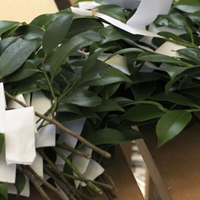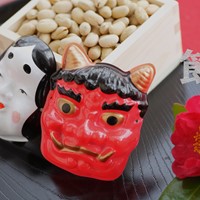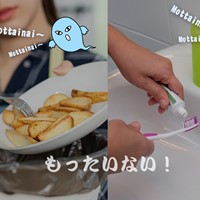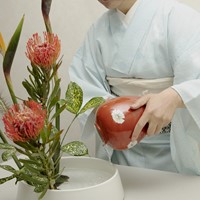Japanese Cleanliness: Japan’s Obsession with Tidying Up

This page contains affiliate links.
Japanese cleanliness is one of the country's defining characteristics that is often remarked upon by tourists and new residents. Everywhere you go, whether it be an office building, public park, private home, or any other location, it is likely spotless. The streets and public facilities are kept immaculate throughout the day, despite the lack of trash cans and street sweepers.
In this article, we will delve into the reasons behind this cultural quirk, examining the history and the unique cleaning practices and products found only in Japan. We will also explore the group cleaning practice found in Japanese schools and what we can learn from Japan's emphasis on cleanliness.

- Rental Apartments & Houses in Tokyo
- Listings of popular and luxurious rental apartments, condominiums, and houses designed with expats in mind.
Why the Japanese Love Keeping Things Clean

There are several reasons why Japan stays clean without the same level of management as other countries. These can be traced back to religious aspects, personal responsibility, group culture, and more.
Spiritual Origins of Cleanliness
One of the main reasons why Japan is so clean, and why it has been this way for such a long time, are the two main religions of Buddhism and Shintoism. In Japanese Shintoism, purity and purification rituals are conducted frequently, including the practice of purifying, or washing, one’s hands, and mouth before entering a shrine. This translates to many other Shinto practices and the frequent removal of kegare (穢れ) or impurities.
Buddhism, on top of this, was introduced to Japan in the 6th Century and holds cleanliness as a central aspect of its philosophy. This is especially true of Zen Buddhism, which was the origin of the practice of the Japanese Tea Ceremony. Cleaning and keeping one’s surroundings clean were a form of meditation and purification. These practices are still current, and while not always conscious, are present in everyday life.
Hygiene and Health Reasons
Maintaining cleanliness is important in Japan for both practical and spiritual reasons. Regular cleaning helps prevent the spread of bacteria and disease, which can be a concern in a humid country like Japan. It is one of the reasons why mask-wearing is so common. Wearing a mask when sick can reduce the spread of infection, ease the burden on the healthcare system and reduce lost days at work. It is considered inconsiderate not to take steps to avoid infecting others.
The same level of consideration applies to trash and dirt. Leaving litter or dirty spaces can cause problems for others and is considered inconsiderate. Therefore, most people clean up after themselves and avoid littering out of a sense of personal responsibility and consideration for the impact of their actions on others.
What Surprises Foreigners Most About Japanese Cleanliness
Japan's commitment to cleanliness can be surprising to foreigners visiting the country. From the organized clean-up efforts after sporting events to the efficient cleaning of the high-speed shinkansen trains, Japan consistently demonstrates its dedication to, and high standards of, cleanliness.
Picking up Trash at Sporting Events
It is well-known that Japan's high level of cleanliness is evident at sporting events. Both players and spectators make an effort to maintain a clean environment. Players ensure that the locker rooms they use are left in pristine condition, while Japanese spectators take their trash home with them and sometimes even participate in stadium-wide clean-up efforts. This can be observed at various sporting events such as the 2022 World Cup, the Germany-Japan game, and the Rugby World Cup in 2019.
Group Cleaning in Japanese Schools
In Japan, many children learn the importance of regular cleaning from a young age, not only at home but also in school. Most Japanese schools have a philosophy of cleaning where students are responsible for cleaning the classrooms and facilities. They are typically divided into small groups and work together to clean the rooms, such as sweeping, mopping, dusting, etc.
This practice instills a sense of responsibility in children and encourages them to take ownership of their mess. It also helps them develop a habit of keeping things clean that they continue to practice as they grow up. The group aspect of the cleaning helps children learn to collaborate and consider the impact of their actions on others.
The “7-minute Miracle”
The Shinkansen bullet train is known for its speed, punctuality, and comfort—and is often considered a tourist attraction in its own right. However, an often-overlooked aspect of the train is its high-level cleanliness, achieved while maintaining punctuality. When the Shinkansen reaches the final stop on a line, a cleaning crew moves in to clean the entire train and turn all the seats around for the next journey, all within just 7 minutes. With up to 17 carriages per train and around 1000 seats, the cleaning staff quickly picks up any forgotten items and trash, wipes down tray tables, cleans the floors, and turns all the seats around. This efficient cleaning process has earned the nickname ‘the 7-minute miracle.’
No Trash Cans on the Streets
The majority of streets in Japan do not have trash cans and haven't for many years, mainly as a result of the 1995 Sarin Gas Attacks. The terrorist attack, orchestrated by a domestic cult group, involved the release of highly toxic and potentially lethal sarin gas on several lines of the Tokyo subway during peak hours. In the aftermath of the attack, trash cans were removed from train stations, streets, and other public facilities as they were considered potential targets for further attacks. While some train stations have reintroduced limited trash cans, they are still a rarity on streets and in most public facilities.
Additionally, many municipalities consider them unnecessary expenses. Instead, the Japanese public relies on the habits of cleanliness and responsibility instilled in them and carries their trash until they find a bin or return home.
Volunteer Clean-up Events

Another aspect of Japanese culture is the community clean-up events in many neighborhoods. At a preset time, most, if not all, residents come together to collect trash. Often, these events are scheduled early in the morning so that even residents who have to go to work can participate. This activity not only helps to keep the neighborhood clean but also promotes community bonding and involvement. Additionally, it helps to raise awareness about keeping the area clean.
There are also non-profit organizations that arrange additional clean-ups in more populated areas or often-overlooked areas. While there is rarely much trash to start with, cleaning up what is there helps to keep the neighborhood clean and discourages littering. People are less likely to litter in a clean area than one that is already dirty.
Best Japanese Cleaning Products
As may be expected by a country so dedicated to keeping everything clean, there is a wide range of cleaning products available to approach every possible cleaning problem. Many of these are unique to Japan or solve unique problems. Some of the most interesting or effective cleaning products include:
The Koro-Koro Cleaner
A versatile cleaning tool that looks similar to a paint roller. It is wrapped in sticky paper that can be used to clean almost any surface. It is commonly used in Japanese homes and businesses, not only to remove lint from clothing but also for light cleaning of carpets or sofas, removing pet hair, and cleaning various other surfaces. The adhesive paper is replaced as it is used, ensuring that the tool always has a fully sticky surface.
Kabi Killer
A popular product used to combat mold issues in Japan's hot and humid summers. It is easy to use and highly effective. Simply spray it on any mold buildup, wait 5 minutes, and the mold will wipe away easily. The name "Kabi Killer" comes from "Kabi" which is the Japanese name for mold, it does exactly what its name implies, kills mold.
Cleaning wipes
A popular and convenient cleaning product in Japan. They come in various forms and have specialized uses—such as cleaning floors, general surfaces, toilets, kitchens, metal surfaces, and carpets. They make general house cleaning easy and convenient to use.
Utamaro General Cleaner
Utamaro was originally a laundry soap that was popular for difficult stains, but now also has a general-purpose cleaning spray version. This cleaning spray is gentle yet effective, pH neutral, non-chlorine-based, and suitable for sensitive skin. It is also biodegradable and much better for the environment than many other cleaners.
More Than Just a Habit, It’s a Way of Life
Cleanliness is a defining aspect of Japanese culture and is often a source of intrigue and surprise for those visiting or living in Japan. The remarkable level of cleanliness, its widespread presence, and the commitment to keeping everything clean are interesting and unique features of Japan. Exploring the history and reasons behind this cultural characteristic can provide a deeper understanding of not only Japanese culture but also our own cultural upbringing and how it shapes our habits and behaviours.
Like what you read? For more intriguing and informative articles on Japanese culture, visit our homepage!


















